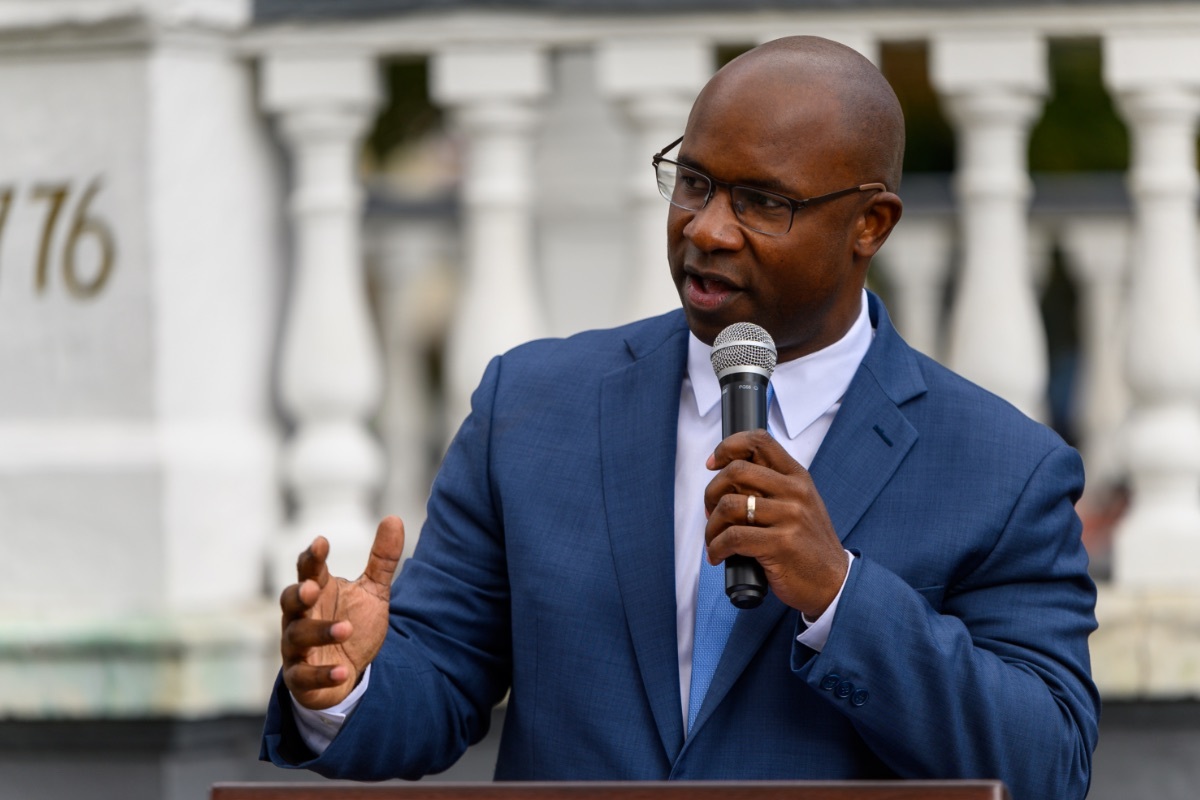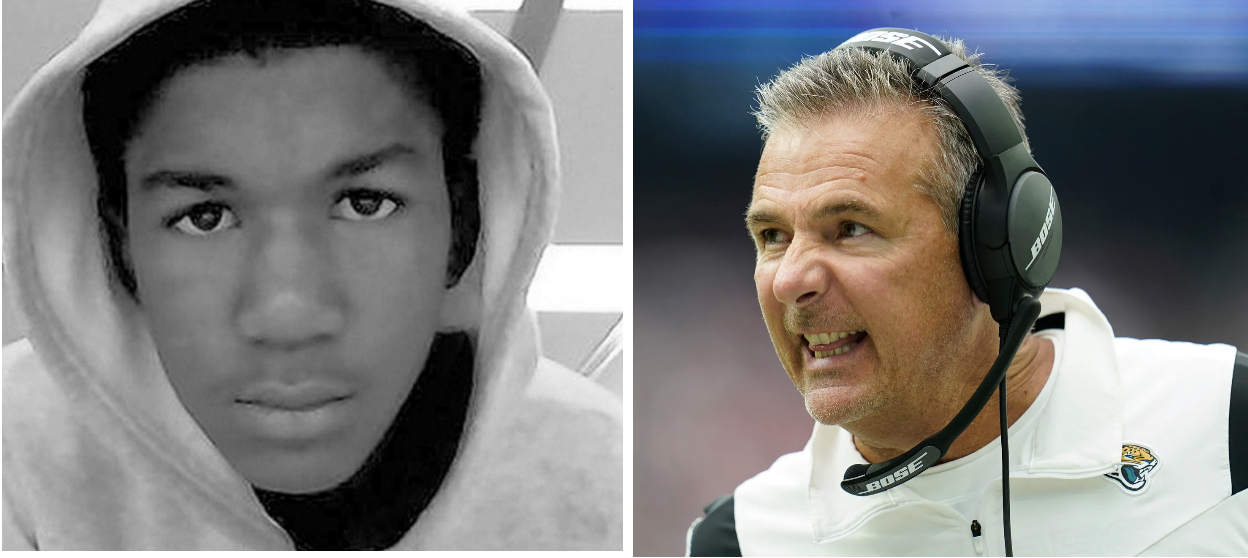The Golden Globe Awards are normally a precursor to what we can expect to see at the Academy Awards. There’s been a boon of nominations for African American actors and actresses in the past. However, early on in the show's 71 year history going back to 1948, black nominees (outside of Sidney Poitier) were mostly restricted to musicians who lent their talents to movie scores. Stevie Wonder, Irene Cara, Lionel Ritchie, Prince, Diana Ross and Isaac Hayes have all been nominated for, or bestowed, with a Globe trophy in the past for Best Original Song in a Motion Picture. Hayes won the award for Best Original Score-Motion Picture in 1972 for Shaft.
But things have certainly changed since then. This year, African American nominees were dotted across the 71st Annual Golden Globe Awards. Idris Elba was a double nominee for Best Actor in a Movie-Drama category for Mandela: Long Walk to Freedom and Best Actor in a mini-series or TV movie for Luther. He was up against Chiwetel Ejiofor who was also nominated in the exact same categories, Best Actor for 12 Years a Slave and Best Actor in a mini-series or TV movie for Dancing on the Edge. Don Cheadle was in the Best Actor in a TV series, Musical or Comedy category for House of Lies. While Barkhad Abdi was nominated for best supporting actor in Captain Phillips.
With the sistas, over in the Best Actress in a Supporting Role in a Motion Picture race was Lupita Nyong'o for 12 Years a Slave. While Kerry Washington was nominated for Best Actress in a TV series drama for Scandal.
When The Shadow League asked Golden Globe and Academy Award-winning actor Forest Whitaker, who was shut out of the Globes this year for his role in Lee Daniel's The Butler (along with everything else about that film) Whitaker said, “Like I can say in The Butler, people are talking about it, you’re happy that people are seeing my work like that, that they see it as that worthy that they went to see the movie and now they want to acknowledge my work. I don’t think that I would have moved to the kind of work that I do if [winning an award] would have been my original motivation,” he said. “I think the first part of my career, I was really fighting and I couldn’t do well enough. I was only concerned about whether I could get good enough.”
RELATED: SCREEN TIME – Forest Whitaker
Whitaker's 2007 Best Actor Globe win in a Motion Picture-Drama for The Last King of Scotland was celebrated throughout Hollywood and won him the Oscar. Some hoped it would herald in a new age of diverse roles and recognition for black actors. But this is always the case. Someone wins, people get excited.
Sidney Poitier was once considered a shoo-in to crash through the glass ceiling of Hollywood recognition with his classic vocal inflections and on screen charm. He has been nominated five times for Best Actor in a Motion Picture-Drama between 1959 and 1968 for roles in The Defiant Ones, A Raisin in the Sun, A Patch of Blue, and Lilies of the Field, which gave him his only Globe win that led to an Oscar.
Denzel Washington has been nominated six times for Cry Freedom, Malcolm X, Hurricane, Training Day, American Gangster and Flight. But he has only won a Globe once for Hurricane in the Best Actor in a Motion Picture-Drama category in 2000. Not Training Day, which won him the Oscar.
African American males have only won three Globes for Best Male dramatic acting out of the 17 times they were nominated. Before the 2014 show, that’s 70 years of film with only 17 nods-with Sydney, Forest, and Denzel winning Oscars as well.
Let that marinate.
The great James Earl Jones won for Best New Star – Actor for his role in The Great White Hope in 1971. The Globes discontinued the "Best New Star" category in 1983. Morgan Freeman won the best actor in a musical and comedy category for, get this, Driving Miss Daisy (Although that film didn’t come off like a comedy the last time we watched). While Jamie Foxx won a well-deserved best actor in a musical trophy for Ray in 2005.
And just like the lack of available roles, the number of black women who win Globes is more daunting.
Whoopi Goldberg was picked for Best Actress in a Drama for The Color Purple in 1986. And in 1994 Angela Bassett won the same award on the Comedy or Musical side for her portrayal of Tina Turner in What’s Love Got To Do With It. But come on, just because black folks are singing doesn’t make it funny. Doesn’t mean we’re laughing. With a story about Ike Turner beating down Anna Mae, Angela’s comedic category win was predictable and deserving, but still, a head scratcher.
On the supporting role side when it comes to the fellas, Louis Gossett Jr., Denzel Washington, and Eddie Murphy each won for dramas after their parts in An Officer and a Gentleman, Glory and Dreamgirls, respectively. With the ladies, Whoopi Goldberg (Ghost), Jennifer Hudson (Dreamgirls), Mo’Nique (Precious), and Octavia Spencer (The Help) all won both the Golden Globe and Academy Award for their roles.
Percentage wise, the best supporting actress category is the most successful of all for African American wins.
Flip the channel to TV and we see that no black male has ever won for a dramatic role. Again, the ladies lead, having won a whopping three times for a dramatic television portrayal. Taking it back to the old school, in 1971 Gail Fisher won best actress in a supporting role in a series, mini-series or motion picture made for TV, for the Lucille Ball and Desi Arnaz produced detective drama Mannix. Two years later, in 1973, Fisher won the best actress trophy for the same project. Regina Taylor won best actress in 1993 for NBC’s I’ll Fly Away.
In TV comedies, past lead actor Globe winners have been Flip Wilson (The Flip Wilson Show, NBC), Redd Foxx (Sanford and Son, NBC), Bill Cosby (The Cosby Show, NBC) and Don Cheadle (House of Lies, Showtime).
Despite these wins, some would prefer to throw back the trophy, arguing that Foxx and Wilson’s comedy styles of the time were shucking and jiving at best, cooning at the worst.
In the TV comedy movie realm, in 1983, Debbie Allen became the only black female winner in the Best Actress in a Television Series-Comedy or Musical category for Fame.
But Blacks do exceedingly well in the best actor or actress in a Mini-Series or Motion Picture Made for Television category. Ving Rhames won for Don King: Only in America in 1998. Idris Elba won for Luther in 2012. He’s nominated again this year.
Best actress awards going to black women for roles on TV mini-series or movies has been a staple. There's been Alfre Woodard in 1998 for Miss Evers’ Boys, Halle Berry in 2000 for Introducing Dorothy Dandridge, E. Epatha Merkerson in 2006 for Lackawanna Blues, and Queen Latifah in 2008 for Life Support.
In the best actor in a supporting role in a series, mini-series or motion picture made for TV area, Louis Gossett, Jr. won for the Josephine Baker Story in 1992. Don Cheadle won for The Rat Pack in 1999. And Jeffrey Wright took home the award for Angels in America in 2004.
When it comes to categories like Best Screenplay, African Americans never win. Nominations have come for Charles Fuller’s A Soldier’s Story in 1985. And Spike Lee for Do The Right Thing in 1990. In fact, because of this film, Spike is the only black to ever be nominated for the Best Director Golden Globe.
But thanks to 2013’s 12 Years a Slave, the screenwriting and director categories have spots of black with lights on John Ridley, nominated for Best Screenplay, and Steve McQueen who’s received a nod for Best Director.
Even as we track and document the path of Black Golden Globe wins, familiar feelings set in. We hope and wonder, anxiously remaining eager to see someone, anyone who looks like us grace the stage, make their speech, and be cut off by the “wrap it up music.” We want those strong feelings of pride. We need and deserve the recognition. Yes, we’d prefer it not be for roles that see us in a stereotypically weakened light – servants, criminals, and slaves.
"We’ve got tons of scripts and stories to tell. I’ve been in Hollywood for years, everyday running into Sydney [Poitier], and everybody in town, telling these great stories. Not even historical, but about the people we know and just how complex we are," says past Globe winner Alfre Woodard, who appears in 12 Years a Slave. "You tell all those people that don’t want somebody to get an [award] because they deserve it, because they are the preeminent performance of the year, tell them to pool all their money together and come talk to us because we got scripts about all kinds of people. But if they’re not going to help us raise money to do our scripts, then they get what people are willing to put their money on. And how dare they do that with this?!"
RELATED: Three Questions for Alfre Woodard
When roles are slim pickings and with no power or representation among the elite who vote in their extravagant "picnic," all we can do is keep track of each time we make and add to our deep black history. We can work to contribute and keep our fingers crossed hoping that shows like the Golden Globes, SAG, Oscars, and everything else that warrants a notch in Hollywood, truly do represent us with the best.
At press time, 12 Years a Slave, the biopic about the life and circumstances of Solomon Northrop, won the Golden Glove award for Best Motion Picture-Drama. The win for 12 Years a Slave represented the only award given to a film with subject matter pertinent to the African American experience in recent memory. And it was the first film directed by a person of African descent to ever win in this category. This is indeed a victory for films that tell black stories in American cinema. However, the fact that none of the black nominees won in their respective acting and directing categories was telling as well. Still, we're proud. Congratulations to Steve McQueen and the entire cast of 12 Years a Slave .



